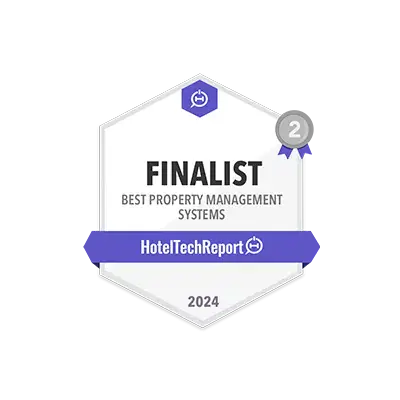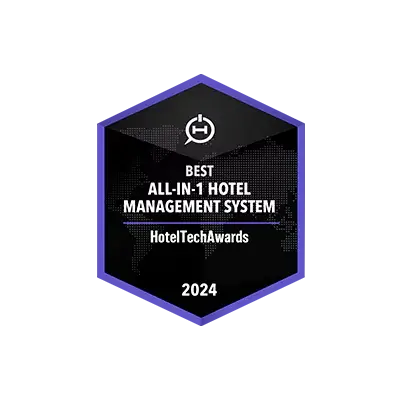How to buy a hotel:
Step-by-step guide
Whether it’s a boutique hotel or a bed-and-breakfast, buying a lodging business is a big decision. It’s not just a substantial investment but it also comes with a significant amount of risk and can require tremendous time and resources to operate.
On the upside, however, being a hotel owner can offer a challenging and rewarding work life, produce a steady source of income, and be a savvy investment that grows in value over time.
Aspiring hospitality entrepreneurs are well advised to take an organized and exacting approach to the purchase process to help ensure smart decisions that lead to the most favorable outcomes. Here, we introduce some key steps involved in buying an existing property, from finding the right spot to closing the deal.
Before you buy: 4 major considerations
First, let’s look at things to consider before your hotel purchase.
Set your goals and criteria
It’s crucial to clarify your motivations for wanting to own a hotel. Is it purely an investment, or will you want to take a hands-on approach to managing the property? Maybe you have worked in the hospitality industry for years and finally want to be your own boss.
In any case, it’s a good idea to consider both short-term and long-term objectives. This will help you determine the type of property you want to purchase and other decisions along the purchase journey, including:
The lodging category. Accommodation businesses come in all shapes and sizes these days. Do you want to buy a small hotel, a full-service resort, a seaside inn, a city hostel, a vacation rental property, or a combination of your favorites?
The hotel concept. What do you want the property to look and feel like, and what will the guest experience be like? Your concept includes everything from interior design to service style to on-site facilities and your hotel brand.
The business model. Do you wish to operate the property as an independent hotel or as a hotel franchise affiliated with a well-known brand like Mariott or Hilton? Or do you want to hand over operations to a hotel management company?
Determine your financing
Before determining what kind of property to buy, you will need to get your finances in order. How much capital will you be able to access, and how much financing will you require? What are your financing options – will you apply for a bank loan or work with investors? Will you need a business partner who can contribute capital and operational expertise?
Answers to the questions will not only help narrow down the type of property you can afford (and downpayment you’ll require), but they will also help determine the return on investment (ROI) needed to obtain financing and keep up with loan payments.
Be aware of all the costs
According to a study from HVS, the average cost of developing a hotel ranged from almost $150,000 for a limited-service hotel to $805,000 for a luxury hotel – and that’s not for the whole hotel; it’s per room or “key.” The costs of purchasing a property can be considerably higher.
A small property such as a hostel, B&B, or vacation rental property may cost much less, but costs will depend on the size of the property, location, and other factors. For any type of property, the higher the caliber of the guest experience, the higher the prices you should be able to charge.
As a first-time small business owner, it’s important to understand all of the costs you’ll have to incur when buying a hotel property. Aside from the purchase price, you will also need to account for related costs such as:
- Property upgrades or renovations (especially if it’s an older property)
- New furniture, fixtures, and equipment (FFE),
- Closing fees
- Permit costs
- Registrations
- Insurance
- Supplies (ie. cleaning and maintenance)
- Labor costs before and after the takeover.
Build your buying team
When starting a new business, it’s essential to work with seasoned professionals who can advise you on the feasibility of your hotel investment, the procedures to follow, and the local regulations with which to comply. Generally, this will include a hotel valuation and appraisal firm, a real estate broker specializing in hotel transactions, a property inspector, and an asset manager.
Criteria to look for when shopping
When you’re ready to start shopping for a property, here are some key criteria to consider.
Location. Is it centrally located, close to downtown, shopping, a convention center, the beach, mountains, or local attractions? The property’s location will greatly affect its performance, including demand for rooms, seasonality, and the target market it can attract.
The property’s condition. Generally, there is less risk involved in purchasing an existing hotel because you can inspect the building and grounds. Is it a turn-key operation that will be up and running fast to start recouping your investment? Or does it need major renovations requiring closure for an extended period?
The property’s performance. If the property is currently in operation, how is it performing regarding metrics like hotel revenue, occupancy rate, average rate, and profit margins? How does its performance compare to its competitor set and similar properties in the region? If the property is no longer in operation, why did it shut down? Can you review its financial statements?
The local market. You may have big plans for upgrading the property and charging premium rates, but the market generally decides what travelers are willing to pay. How does the accommodation sector in the area perform as a whole? Is there a glut of supply of hotel rooms or a shortage? Is travel to the region seasonal or steady year-round?
The property’s reputation. If the property is well-run and has a good reputation, you will benefit from positive awareness and built-in guest loyalty, which will help generate demand. However, if it has a bad reputation, it will be harder to attract guests, and it may take a long time to build a positive reputation.
Buying a hotel: A step-by-step guide
When buying a hotel, here are the basic steps to follow:
1. Research
Work with a hotel broker or commercial real estate company to find a suitable location and determine if any properties are for sale in the area. When you find a property you’re interested in purchasing, develop a hotel business plan to share with the bank or investors.
2. Financing
Determine where you can get financing from – personal investments, bank loans, outside investors, or other sources? Remember, you will need capital to not only purchase the property but also to operate it until it becomes profitable.
3. Market analysis
Commission a feasibility study – an analysis to determine the property’s potential as a sustainable and viable financial investment. The study should analyze everything from the location and local market conditions to the economic landscape and regulations in the hotel market.
4. Due diligence
Review the hotel’s profit & loss statements from the past several years, as well as its accounts, cash flow, assets and liabilities, debts, contracts, and any legal encumbrances. Is the property under a franchise agreement or other long-term contracts? Are there any zoning requirements or hidden requirements you should be aware of? Commission an inspection to evaluate the physical condition of the property and building.
5. Financial projections
Work with a financial expert to forecast the costs of renovations and project revenue, expenses, and profitability in the first years of operation. This will include daily rates, revenue from rooms (RevPAR), food & beverage, and other sources, the costs of loan payments, interest rates, insurance, property taxes, and utilities, as well as pre-and post-opening operating costs.
Labor shortages have been a big issue in hotels in recent years for hoteliers, so you should research the labor market and average wages to determine key staff members to budget for (and consider how you may want to use technology to support your team).
6. Offer & negotiation
If everything looks good, a real estate broker can assist with submitting a formal offer or letter of intent detailing the purchase terms, as well as subsequent negotiations.
7. Paperwork & closing
If the offer is accepted, financing arrangements will need to be finalized with the lender. An attorney can help draft the purchase agreement and ensure all needed documents are in order. After all conditions have been met on the closing date, ownership will be transferred to the purchaser.
Strategies for buying your dream property
Buying a hotel is a substantial and complex endeavor that demands careful planning and financial foresight. When assessing potential properties, factors such as the type of hotel, location, condition, performance, local market dynamics, and reputation are pivotal in determining success. Be thorough in the research and discovery process and ensure you find a property to help you achieve your short- and long-term objectives. Do your due diligence when examining past performance, and make sure that you’re clear on why the existing owners are looking to sell. Don’t be afraid to ask for help from advisors, consultants, and other hotel industry professionals throughout the process.


















